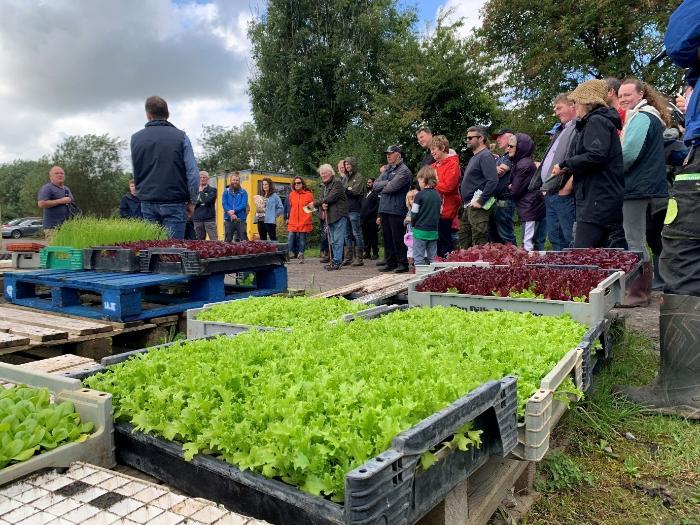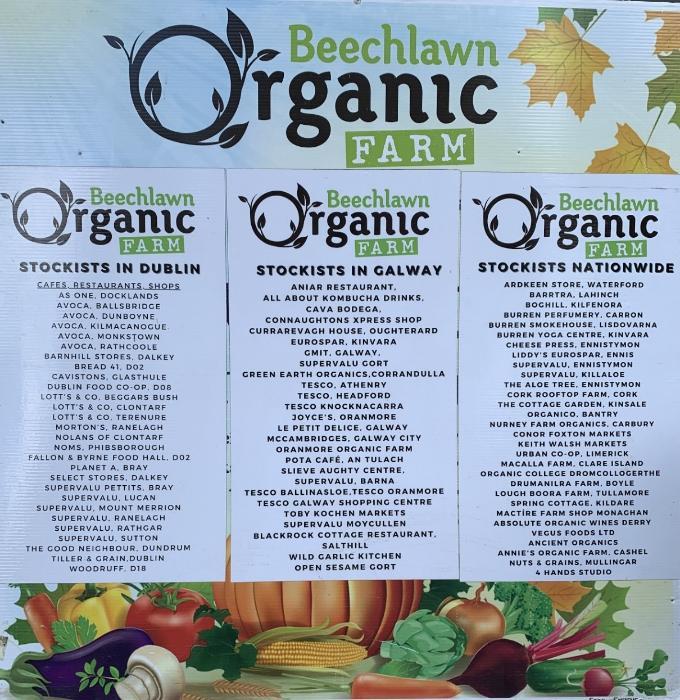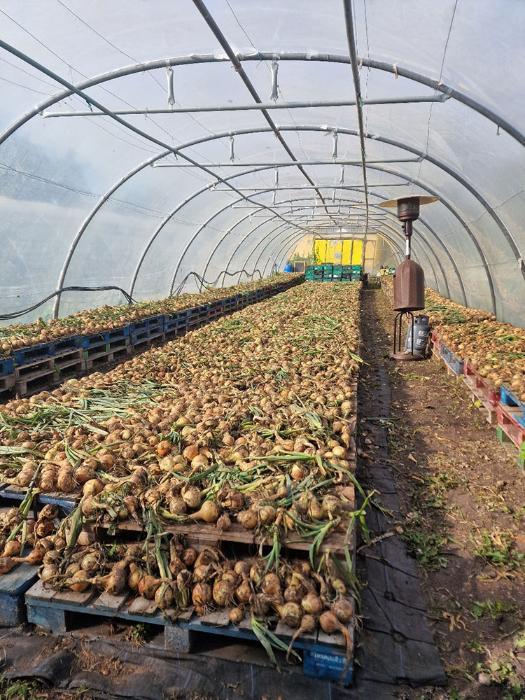Beechlawn Organic Farm
Beechlawn Organic Farm 13 September 2024 Type Media Article By Padraig Glynn, B&T Drystock Adviser, Teagasc Galway/Clare Beechlawn Organic Farm, Ballinasloe, Co. Galway is owned and ran by Padraig Fahy and Úna Ní Bhroin. On Wednesday 28th August they hosted an organic farm walk which was organised by Teagasc. It was a very successful event […]
By By Padraig Glynn, B&T Drystock Adviser, Teagasc Galway/Clare
Beechlawn Organic Farm
Type Media Article
By Padraig Glynn, B&T Drystock Adviser, Teagasc Galway/Clare
Beechlawn Organic Farm, Ballinasloe, Co. Galway is owned and ran by Padraig Fahy and Úna Ní Bhroin. On Wednesday 28th August they hosted an organic farm walk which was organised by Teagasc. It was a very successful event and it attracted farmers from across the country. William Deasy, a specialised vegetable advisor from Teagasc organised most of the event and was the main speaker along with Padraig and Úna on the day.

Beechlawn Organic Farm was established in 2002, starting off with one acre of vegetables and selling home delivery boxes. Since then the business has grown significantly and they now employ 20 people full time as part of their field, packhouse, delivery, office and sales team. Widely known as one of the leading organic enterprises in Ireland, Beechlawn Organic Farm have previously been a Teagasc/DAFM organic demonstration farm and key operational group member of the Maximising Organic Production Systems (MOPS) EIP-AGRI project 2018-2021. They supply about 40% of their produce to supermarkets/retailers, 35% to shops/restaurants/growers and 25% to wholesalers/consolidators.

Main topics discussed on the farm walk
- An overview of Beechlawn Organic Farm
- Growing organic module transplants from seed: techniques, varieties and management
- Polytunnel and field-scale organic vegetable production
- Machinery and equipment
Background to the farm
A huge array of organic horticulture crops are grown on the farm including leaf and root brassicas, alliums, beetroot, spinach, celery, root vegetables, tomatoes, cucumbers and a range of salad leaves. 17.28 hectares of the farm is polytunnels and field-scale organic vegetables. 13.55 hectares is fallow/cover/catch crops/green manure and designated habitats. 7.81 hectares is permanent pasture. The farm uses a one/two year fertility building period (green manure) for every three years of cropping. The cropping sequence for the major crops is brassicas/alliums/root crops/brassicas and back to green manure. Some of the farm is in conversion so there is two years of grass/clover followed by three years of cropping.

Soil fertility
The farm is regularly soil sampled in order to keep soil fertility at optimum levels. Most of the soil has a naturally high pH due to the underlying parent material which is predominantly limestone. The soil pH ranges from 7.5 – 7.8 in the polytunnels and 5.6 – 7.6 for the field soils. Most of the farm also is in index 3 or 4 for Phosphorus (P) and Potassium (K). Poultry manure is the main source of P and K that is used on the farm.
Red & white clover
Both red and white clover are used on the farm due to the nitrogen fixation properties of clover. This is hugely beneficial in organic farming and helps farmers to cope without the use of chemical fertilisers. Beechlawn organic farm availed of the Red Clover Silage Measure (RCSM) in 2023 which paid farmers €300/ha for growing the crop. This incentivises farmers to sow red clover silage swards, which allows for a more environmentally friendly production system while also providing a financial contribution to participating applicants to offset part of the cost that farmers incur in the establishment of these swards. The farm also has grass and white clover swards in some of the land which is in organic conversion. White clover has many benefits, especially to organic farms. These include nitrogen fixation, lower requirement for N, increased herbage quality, increased dry matter intake and higher milk production and live weight gain.
There is a booklet from the farm walk available to download on the Teagasc website for more information on Beechlawn Organic Farm.
Beechlawn Organic Farm Walk (pdf)
Organic Farming – can all farms follow?
One of main steps involved in deciding whether organic farming is for you or not is to consider the crop and animal systems that you will use on your farm. When choosing the crop systems used on your farm you must ask yourself the following questions:
- Can you incorporate a grass/clover break into your rotation?
- Do you have a source of farmyard manure/compost/slurry on or near your own farm?
- Can you see yourself farming without relying on pesticides and chemical fertilisers?
Then in terms of animal system, you must consider the following questions:
- Is your current stocking rate below 2 livestock units per ha?
- Can your animal housing be modified to incorporate a bedded lying area?
- Do you already use no or relatively low levels of artificial fertiliser?
These are some of the main points that should be considered when deciding if organics is for you or not. Evidence has sown how white clover is crucial to production and profitability on grass-based organic farms. Furthermore a grasp of the role and establishment of white clover is essential.
